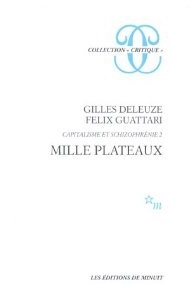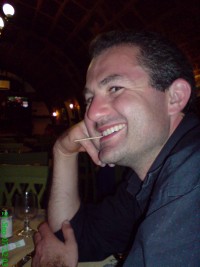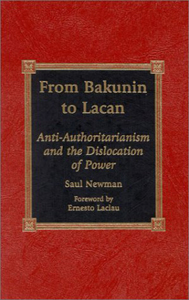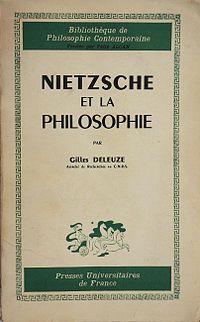Related Research Articles
Anarchism is a political philosophy and movement that is skeptical of all justifications for authority and seeks to abolish the institutions it claims maintain unnecessary coercion and hierarchy, typically including nation-states, and capitalism. Anarchism advocates for the replacement of the state with stateless societies and voluntary free associations. As a historically left-wing movement, this reading of anarchism is placed on the farthest left of the political spectrum, usually described as the libertarian wing of the socialist movement.
Political freedom is a central concept in history and political thought and one of the most important features of democratic societies. Political freedom was described as freedom from oppression or coercion, the absence of disabling conditions for an individual and the fulfillment of enabling conditions, or the absence of life conditions of compulsion, e.g. economic compulsion, in a society. Although political freedom is often interpreted negatively as the freedom from unreasonable external constraints on action, it can also refer to the positive exercise of rights, capacities and possibilities for action and the exercise of social or group rights. The concept can also include freedom from internal constraints on political action or speech. The concept of political freedom is closely connected with the concepts of civil liberties and human rights, which in democratic societies are usually afforded legal protection from the state.

Gilles Louis René Deleuze was a French philosopher who, from the early 1950s until his death in 1995, wrote on philosophy, literature, film, and fine art. His most popular works were the two volumes of Capitalism and Schizophrenia: Anti-Oedipus (1972) and A Thousand Plateaus (1980), both co-written with psychoanalyst Félix Guattari. His metaphysical treatise Difference and Repetition (1968) is considered by many scholars to be his magnum opus.
Individualism is the moral stance, political philosophy, ideology and social outlook that emphasizes the intrinsic worth of the individual. Individualists promote realizing one's goals and desires, valuing independence and self-reliance, and advocating that the interests of the individual should gain precedence over the state or a social group, while opposing external interference upon one's own interests by society or institutions such as the government. Individualism makes the individual its focus, and so starts "with the fundamental premise that the human individual is of primary importance in the struggle for liberation".
Nihilism is a family of views within philosophy that rejects generally accepted or fundamental aspects of human existence, such as knowledge, morality, or meaning. The term was popularized by Ivan Turgenev and more specifically by his character Bazarov in the novel Fathers and Sons.

Political philosophy or political theory is the philosophical study of government, addressing questions about the nature, scope, and legitimacy of public agents and institutions and the relationships between them. Its topics include politics, liberty, justice, property, rights, law, and the enforcement of laws by authority: what they are, if they are needed, what makes a government legitimate, what rights and freedoms it should protect, what form it should take, what the law is, and what duties citizens owe to a legitimate government, if any, and when it may be legitimately overthrown, if ever.
Post-structuralism is a philosophical movement that questions the objectivity or stability of the various interpretive structures that are posited by structuralism and considers them to be constituted by broader systems of power. Although post-structuralists all present different critiques of structuralism, common themes among them include the rejection of the self-sufficiency of structuralism, as well as an interrogation of the binary oppositions that constitute its structures. Accordingly, post-structuralism discards the idea of interpreting media within pre-established, socially constructed structures.
The distinction between subject and object is a basic idea of philosophy.

Johann Kaspar Schmidt, known professionally as Max Stirner, was a German post-Hegelian philosopher, dealing mainly with the Hegelian notion of social alienation and self-consciousness. Stirner is often seen as one of the forerunners of nihilism, existentialism, psychoanalytic theory, postmodernism and individualist anarchism.
Continental philosophy is a term used to describe some philosophers and philosophical traditions that do not fall under the umbrella of analytic philosophy. However, there is no academic consensus on the definition of continental philosophy. Prior to the twentieth century, the term "continental" was used broadly to refer to philosophy from continental Europe. A different use of the term originated among English-speaking philosophers in the second half of the 20th century, who used it to refer to a range of thinkers and traditions outside the analytic movement. Continental philosophy includes German idealism, phenomenology, existentialism, hermeneutics, structuralism, post-structuralism, deconstruction, French feminism, psychoanalytic theory, and the critical theory of the Frankfurt School as well as branches of Freudian, Hegelian and Western Marxist views. There is widespread influence and debate between the analytic and continental traditions; some philosophers see the differences between the two traditions as being based on institutions, relationships, and ideology rather than anything of significant philosophical substance.

A Thousand Plateaus: Capitalism and Schizophrenia is a 1980 book by the French philosopher Gilles Deleuze and the French psychoanalyst Félix Guattari. It is the second and final volume of their collaborative work Capitalism and Schizophrenia. While the first volume, Anti-Oedipus (1972), was a critique of contemporary uses of psychoanalysis and Marxism, A Thousand Plateaus was developed as an experimental work of philosophy covering a far wider range of topics, serving as a "positive exercise" in what Deleuze and Guattari refer to as rhizomatic thought.

Saul Newman is a British political theorist who writes on post-anarchism. He is professor of political theory at Goldsmiths College, University of London.
Philosophical anarchism is an anarchist school of thought which focuses on intellectual criticism of authority, especially political power, and the legitimacy of governments. The American anarchist and socialist Benjamin Tucker coined the term philosophical anarchism to distinguish peaceful evolutionary anarchism from revolutionary variants. Although philosophical anarchism does not necessarily imply any action or desire for the elimination of authority, philosophical anarchists do not believe that they have an obligation or duty to obey any authority or conversely that the state or any individual has a right to command. Philosophical anarchism is a component especially of individualist anarchism.

Joseph Zalman Margolis was an American philosopher. A radical historicist, he authored many books critical of the central assumptions of Western philosophy, and elaborated a robust form of relativism.

Mark Olssen, FAcSS, a political theorist, is Emeritus Professor of Political Theory and Education Policy in the Department of Politics within the Faculty of Social Sciences at the University of Surrey.

From Bakunin to Lacan: Anti-Authoritarianism and the Dislocation of Power is a book on political philosophy by Saul Newman, published in 2001. It investigates the essential characteristics of anarchist theory, which holds that government and hierarchy are undesirable forms of social organisation. Newman seeks to move beyond the limitations these characteristics imposed on classical anarchism by using concepts from post-structuralist thought.

Nietzsche and Philosophy is a 1962 book about Friedrich Nietzsche by the philosopher Gilles Deleuze, in which the author treats Nietzsche as a systematically coherent philosopher, discussing concepts such as the will to power and the eternal return. Nietzsche and Philosophy is a celebrated and influential work. Its publication has been seen as a significant turning-point in French philosophy, which had previously given little consideration to Nietzsche as a serious philosopher.
Simon Lumsden is Associate Professor of philosophy at University of New South Wales. He is known for his research on subjectivism, German idealism and poststructuralism.
Keith Ansell-Pearson is a British philosopher specialising in the work of Friedrich Nietzsche, Henri Bergson and Gilles Deleuze. He is currently Professor of Philosophy at Warwick University.

Daniel W. Smith is an American philosopher, academic, researcher, and translator. He is a professor in the Department of Philosophy at Purdue University, where his work is focused on 19th and 20th century continental philosophy.
References
- 1 2 "Curriculum Vitae" (PDF). Clemson University.
- ↑ "Todd May". Warren Wilson College. Retrieved June 22, 2023.
- ↑ "College of Architecture, Arts and Humanities | Faculty Bio". www.clemson.edu. Retrieved September 2, 2021.
- ↑ Bieber, Matt (February 16, 2023). "Todd May". The Believer.
- 1 2 "The Philosopher Behind 'The Good Place' Explains How To Raise Good Kids". Fatherly. January 18, 2019. Retrieved September 2, 2021.
- ↑ Antliff, Allan (2007). "Anarchy, Power, and Poststructuralism". SubStance. 36 (2, issue 113: The Future of Anarchism): 56–66. doi:10.1353/sub.2007.0026. JSTOR 25195125. S2CID 146156609.
- ↑ Pearson, Keith Ansell (June 2005). "Gilles Deleuze: An Introduction". Notre Dame Philosophical Reviews.
- ↑ Anthony A. Defalco (August 14, 2008). "A Review of "Philosophy of Foucault (European Philosophy Series)". Educational Studies. 44: 77–82. doi:10.1080/00131940802225119. S2CID 218508263.
- ↑ Cave, Stephen (September 12, 2009). "Better late than never". Financial Times.
- ↑ Fillion, Réal (April 1, 2010). "Our Practices, Our Selves, or, What It Means to Be Human". Dialogue: Canadian Philosophical Review. 42 (1): 150–153. doi:10.1017/S0012217300004273. S2CID 170352140.
- ↑ Weiskopf, Richard. "Friendship and counter-conduct in the neoliberal regime of truth". Ephemera. 13 (3): 683–693.
- ↑ Metz, Thaddeus (August 19, 2015). "A Significant Life: Human Meaning in a Silent Universe". Notre Dame Philosophical Reviews.
- ↑ Zaretsky, Robert (October 10, 2017). "Matters Large and Small: Reading Todd May's "A Fragile Life" in the Wake of Hurricane Harvey". Los Angeles Reviews of Books.
- ↑ "Philosophy on TV: "The Good Place"". Blog of the APA. June 21, 2017. Retrieved January 11, 2018.
- ↑ VanDerWerff, Emily (January 31, 2020). "The Good Place was groundbreaking TV. Did its finale measure up?". Vox. Retrieved February 1, 2020.
- ↑ Widmer, Kingsley (1996). "Notes on Some Recent Anarchisms". Social Anarchism (21): 88–97. ISSN 0196-4801.